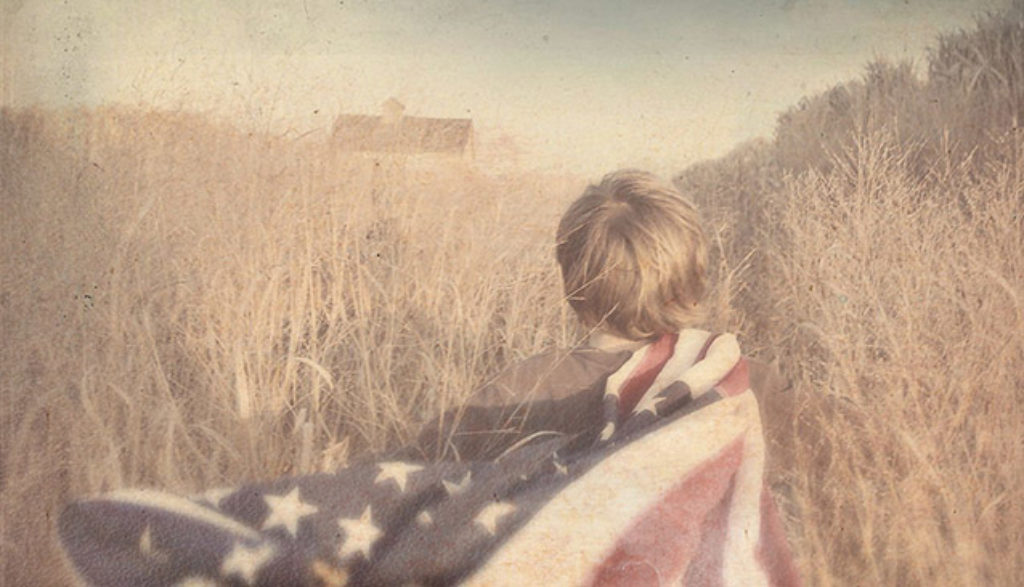
“What if the life that we’re living right now is this unsustainable bubble that cannot go on and perhaps does not deserve to go on?” ponders Tim McIlrath, frontman for the Chicago-based punk outfit Rise Against. “What if the world we created is a place that is so unnatural and ugly that it is a world that needs to come to an end, so that we could have a world that is better for everybody?”
Those questions frame this provocative band’s sixth full-length effort, Endgame, a loose concept album that spends far more time on its bursts of sociopolitical rage than the faint flickers of hope lurking around the edges. McIlrath and Co. take angry aim at a broad range of subjects, from the disasters of Katrina and the BP oil spill, to the human cost of the ongoing American war effort, to the bullying of gay teens, to the self-serving corruption of our nation’s status quo.
At times, the subjects Rise Against focuses on are as up-to-the-minute as the news of the day—including a chilling reference to destructive radiation leaks. Other times, the band imagines our world as a broken dystopia in the near future, a world in which Rise Against and its revolutionary (anarchic?) brethren see new possibilities amid the smoldering chaos and destruction.
“Architects” prods people to be change agents instead of waiting for someone else to do that job for them. “Survivor Guilt” hauntingly yet honestly grapples with what it means (or doesn’t mean) to fight for a country you might not completely support. It’s written from the perspective of a soldier who gave his life and questions whether it was worth it: “All I gave was everything/Fought your fight/ … I fought with courage to preserve/Not my way of life, but yours/ … And in return I lost my life/What purpose does this serve?” A sampled bit of thought-provoking dialogue from the 1970 war film Catch-22 finds a heavily accented man ruminating on the inevitability of America’s fall: “Rome was destroyed. Greece was destroyed. Persia was destroyed. Spain was destroyed. All great countries are destroyed. Why not yours? How much longer do you think your country will last?”
“Help Is on the Way” laments the destructiveness of Hurricane Katrina and the suffering faced by the 11 families of the men who were killed when the Deepwater Horizon oil rig exploded. The song also wonders about the cost of our culture’s hyper-dependence upon oil. “Disparity by Design” addresses themes of justice and equality as the band ponders why some people are privileged and some end up on welfare.
“Midnight Hands” pledges lifelong faithfulness “Whatever path you take, wherever you might go/Whenever you decide to leave, I will follow.” On “Wait for Me,” a desperate man who grew up in a broken home pleads for someone not to give up on him. “This Is Letting Go” is a somberly insightful reflection on the end of a romantic relationship. “Make It Stop (September’s Children)” mourns (by name) the premature loss of several homosexual teens who committed suicide in September 2010, but …
… the band fixes most of the blame for their deaths upon Christians who believe that homosexuality is a sin, a conviction the band labels as “hate.” “What God would damn a heart?” McIlrath asks. “Born free, but still they hate/ … Too much blood has flown from the wrists/Of the children shamed for those they chose to kiss/ … This life chose me, I’m not lost in sin/But proud I stand of who I am.” The song also includes some vague but disturbing hints of violence within the context of a school: “Bang bang from the closet walls/The schoolhouse halls/The shotguns loaded/Push me and I’ll push back.”
“Architects” perhaps takes self-reliance a step too far by implying that each person, not God, can be his or her own master: “Let’s decide to be the architects/The master of our fate.” Similarly, “Endgame” suggests that religious belief has failed humanity (“We prayed for gods to save us/But there was no antidote/Disease tore us apart”).
Seething contempt for the privileged elite permeates “Disparity by Design.” “Satellite” talks of the self-styled “orphans of the Amerikan dream” plotting a revolution (“We stick to you, game plans and party lines/But at night we’re conspiring by candlelight/ … We won’t back down, we won’t run and hide”). That revolutionary battle perhaps begins on “Midnight Hands” as McIlrath sings, “There in the clearing we gathered close/Under the moon’s pale light/We laid out the tools/ … Gripped by the midnight hands/We cradle futures/They would prevent”). Likewise, “Broken Mirrors” toys with the idea of intentionally burning down civilization by way of a cigarette-smoking man who believes it’s his job to torch a town: “I’m the one who sets it all on fire/A fate that we deserve/There’s no escape/Now it’s your turn.”
“Architects” and “Survivor Guilt” include f-words.
How you respond to Rise Against’s latest effort probably depends a great deal on how sympathetic you are to the band’s angry, revolutionary stance. If you see our society as broken, full of inequities, and in need of immediate and radical change, many of the messages here will likely resonate. If you’re hopeful about the future and relatively calm about the present, you may well decide that the sometimes rancid discussion of decay is overblown and undeserved.
My objections began when the band decided to play judge and jury with regard to sincere Christians’ convictions about the issue of homosexuality. And I found that the album’s pessimistic and despairing take on our entire civilization created an atmosphere in which that negativity didn’t subside much afterwards.


After serving as an associate editor at NavPress’ Discipleship Journal and consulting editor for Current Thoughts and Trends, Adam now oversees the editing and publishing of Plugged In’s reviews as the site’s director. He and his wife, Jennifer, have three children. In their free time, the Holzes enjoy playing games, a variety of musical instruments, swimming and … watching movies.